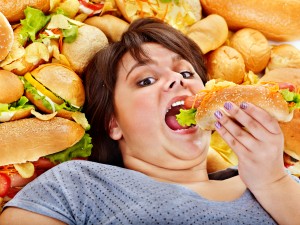 Making a full recovery from a food addiction is challenging, but possible. Compulsive overeating is a learned behavior, one that most addicts develop in their early years, which requires cognitive behavioral reevaluation in order to defeat. There is more than one way to eradicate a food addiction, depending on its level of severity.
Making a full recovery from a food addiction is challenging, but possible. Compulsive overeating is a learned behavior, one that most addicts develop in their early years, which requires cognitive behavioral reevaluation in order to defeat. There is more than one way to eradicate a food addiction, depending on its level of severity.
For a minor food addiction, self-help literature may solve the problem. This is an easily accessible solution for those who are good at teaching themselves and enjoy reading. This type of literature will give the reader ideas for ways of practicing cognitive behavioral exercises that will help them curb their overeating habit.
For a moderate eating addiction, one popular method of treatment is a support group. Support groups join together to share similar stories of struggles with food addiction, and to share tips on what has worked for them. Having a group of people to be accountable to, lean on for support and empathize with your food addiction struggles is invaluable to many food addicts.
If it is professional counseling you require, but you do not feel that you need inpatient rehabilitation, outpatient rehabilitation or addiction counseling may be the best remedy for you. This will give you access to an expert mental health opinion who can help you discover the underlying causes of your eating addiction and form new, healthier behavior and thought patterns.
And for those with a severe food addiction that is putting them at risk, inpatient addiction treatment is the best option. Inpatient rehab covers all the major areas that your mental and physical health has been jeopardized, restoring them to their original health. Living in the treatment facility keeps you away from unhealthy trigger foods. Your treatment will consist of an in-depth look at why you overeat, individual and group counseling, as well as healthy therapeutic activities such as outdoor recreation and gym time.

